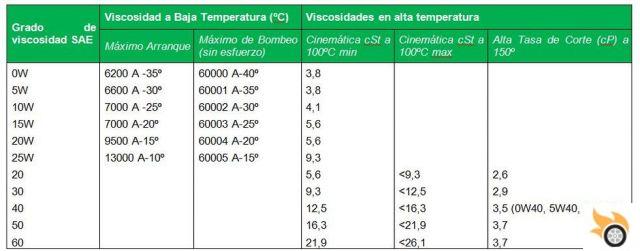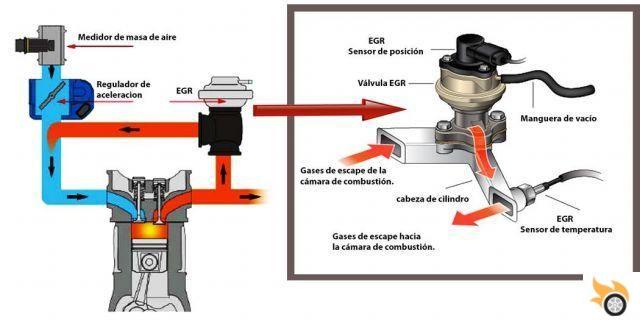
Oil Viscosity Index Article
Introduction
Welcome to our article on oil viscosity index. In this text, we will address all the questions and concerns you may have regarding this very important subject for the operation of your engine. From what it is and how it affects the viscosity index of the oil, to the consequences of choosing the wrong lubricant, here you will find all the information you need.
What is the viscosity index of oil?
Let's start by understanding what the viscosity index of oil is. The viscosity of the oil refers to its resistance to flow, that is, how thick or liquid it is. The viscosity index is a measurement that indicates how the viscosity of the oil varies with changes in temperature. An oil with a high viscosity index will maintain its viscosity more stable at different temperatures, while one with a low viscosity index will experience more drastic changes in its viscosity.
Oil viscosity: important aspects
The viscosity of the oil is a crucial factor for the correct operation of the engine. An oil with the wrong viscosity can cause serious damage to the engine and reduce its efficiency. It is important to choose the oil with the viscosity recommended by the vehicle manufacturer, as this will guarantee correct lubrication of the parts and adequate protection against wear.
Recommendations for changing oil viscosity
If you are considering changing the viscosity of your engine oil, it is important to keep some recommendations in mind. First, always check your owner's manual for manufacturer specifications. Also, take into account the weather conditions and the type of driving you do. In some cases, it may be necessary to change the oil viscosity to accommodate extreme temperatures or a particular driving style.
Consequences of incorrectly choosing the lubricant
Choosing the wrong motor oil can have serious consequences. If you use an oil with too low a viscosity, there may be a lack of adequate protection between engine parts, which can lead to premature wear and irreparable damage. On the other hand, if you use an oil with too high a viscosity, there may be excessive resistance to flow, which can affect lubrication and engine performance.
Why is oil viscosity index key?
The viscosity index of the oil is key because it tells us how the oil will behave at different temperatures. An oil with a high viscosity index will maintain its viscosity more stable, which means that it will continue to adequately protect the engine even in extreme temperature conditions. On the other hand, an oil with a low viscosity index will experience more drastic changes in its viscosity, which can affect its lubricating ability.
What happens when the viscosity of the engine oil increases?
As the viscosity of the engine oil increases, it will become thicker. This can be beneficial in certain cases, such as engines operating at high temperatures or under heavy load conditions. A more viscous oil can provide better wear protection and reduce friction between engine parts. However, it is important to follow the manufacturer's recommendations and not increase the viscosity beyond what is recommended, as this can negatively affect engine performance.
Consequences of decreasing oil viscosity
Lowering the viscosity of the oil can have negative consequences for the engine. An oil that is too low in viscosity may not provide adequate protection between engine parts, which can lead to premature wear and engine damage. Additionally, a low viscosity can affect the oil's ability to maintain a proper lubricating film, which can result in increased friction and reduced engine efficiency.
Viscosity analysis
Viscosity analysis is an important tool to assess the quality and condition of oil. This analysis consists of measuring the viscosity of the oil and comparing it with the reference values. If the viscosity is outside of the acceptable ranges, it may indicate the presence of contaminants or oil deterioration. Periodic viscosity analysis can help detect engine problems and take preventative action before further damage occurs.
Frequently Asked Questions (FAQs)
1. What is the recommended viscosity for my engine?
The recommended viscosity for your engine may vary depending on the manufacturer and model of the vehicle. The best way to find out the recommended viscosity is by consulting your owner's manual. There you will find the exact specifications for your engine.
2. Can I mix oils of different viscosities?
It is not recommended to mix oils of different viscosities, as this can alter the properties of the oil and affect its performance. It is best to use the oil recommended by the manufacturer and follow the instructions in the owner's manual.
3. When should I change my engine oil?
Oil change frequency may vary depending on the type of oil used and driving conditions. In general, it is recommended to change the oil every 5.000 to 10.000 kilometers or every 6 months, whichever comes first. However, it is important to check your owner's manual for specific recommendations for your vehicle.
Conclusion
In conclusion, the viscosity index of the oil is a key factor for the correct operation of the engine. Choosing the right viscosity and following the manufacturer's recommendations are essential to ensure proper lubrication and optimal engine protection. In addition, regular viscosity analysis can help detect problems before they become major damage. Always remember to consult the owner's manual and follow the manufacturer's instructions to keep your engine in optimal condition.
We hope this article has been helpful and has answered all your questions about oil viscosity index. If you have any other questions or comments, feel free to leave them below. We will be happy to help you!
Until next time!
The Pistonudos.com team


























